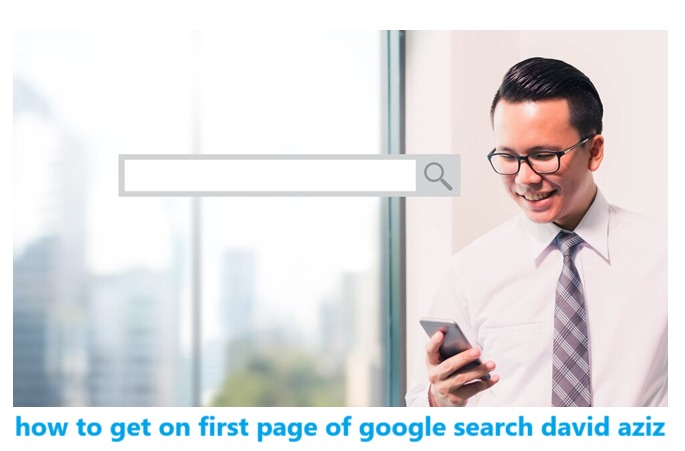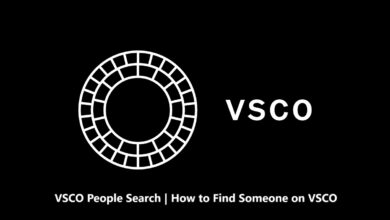How to Get on First Page of Google Search: David Aziz’s Guide

Everyone wants their website to shine on Google’s first page. Let’s face it—if you’re not on that coveted first page, your chances of being found online drop dramatically. But how do you get there? That’s exactly what we’ll uncover today, with a step-by-step guide inspired by SEO expert David Aziz. Whether you’re running a blog, a business, or just want to rank higher, this guide is for you.
Why Does the First Page of Google Matter?
Picture this: you’re searching for the best pizza in town. Do you scroll past the first page of results? Probably not. Statistics show that 75% of users never go beyond the first page. If you’re not there, you’re missing out on massive traffic.
So, let’s roll up our sleeves and dive into the strategies that can get you there.
1. Start with Keyword Research (Hint: Like “David Aziz”)
Keywords are the backbone of SEO. They’re what people type into Google when searching. For example, the keyword “how to get on first page of Google search David Aziz” is a perfect phrase to target if you’re writing about SEO tips.
Here’s how to find the right keywords:
- Use Free Tools: Google’s Keyword Planner, Ubersuggest, and AnswerThePublic are great starting points.
- Focus on Long-Tail Keywords: Phrases like “how to improve my website’s SEO with David Aziz’s methods” have lower competition and higher chances of ranking.
- Check Competitor Keywords: Tools like Ahrefs or SEMrush let you spy on what your competitors rank for.
Pro Tip: Make your primary keyword sound natural. Don’t just stuff “David Aziz” in every sentence—Google hates that, and readers will too.
2. Create High-Quality Content
Google’s algorithms prioritize content that is helpful, relevant, and engaging. Think of it as answering a reader’s questions better than anyone else.
What does high-quality content look like?
- It’s Comprehensive: Cover all aspects of your topic.
- It’s Readable: Use short paragraphs, bullet points, and subheadings (like this blog!).
- It’s Unique: Don’t copy-paste from other sites. Google’s smarter than you think.
David Aziz’s tip: “Focus on what the reader wants. Answer their questions first, then show them why your solution is the best.”
3. Optimize Your On-Page SEO
On-page SEO means tweaking the content and structure of your site to make it more attractive to search engines.
Quick checklist for on-page SEO:
- Title Tag: Include your keyword naturally. For example, “How to Get on First Page of Google Search: David Aziz’s Guide.“
- Meta Description: Write a concise summary (around 155 characters) with your keyword.
- Headings (H1, H2, H3): Organize your content and include keywords where it fits.
- Images: Use alt text to describe images. Example: “Screenshot of David Aziz’s SEO tips.“
- Internal Links: Link to other relevant content on your site.
- External Links: Reference authoritative sources (like studies or expert blogs).
4. Build High-Quality Backlinks
Backlinks are links from other websites to yours. Google treats them like trust signals.
How to Get Backlinks:
- Create Shareable Content: People link to content that’s useful, entertaining, or surprising.
- Reach Out: Email bloggers and website owners in your niche. Politely ask if they’d consider linking to your content.
- Guest Blogging: Write articles for other sites and include a link back to yours.
Remember, it’s about quality, not quantity. A single backlink from a high-authority site (think Forbes or BBC) can outweigh 50 links from random blogs.
5. Speed Up Your Website
Nobody likes waiting for a slow website, and Google feels the same way. A faster site means better rankings.
Speed Hacks:
- Compress your images.
- Use a reliable hosting provider.
- Minimize unnecessary code or plugins.
- Use tools like Google PageSpeed Insights to find and fix problems.
David Aziz’s rule: “If your site doesn’t load in 3 seconds, you’re losing visitors.”
6. Make Your Site Mobile-Friendly
More than 60% of Google searches happen on mobile devices. If your site isn’t optimized for mobile, you’re missing out.
How to Check:
- Use Google’s Mobile-Friendly Test tool.
- Simplify your design and navigation for smaller screens.
- Avoid tiny buttons or links that are hard to click.
7. Use Social Media to Boost Your Content
While social signals aren’t a direct ranking factor, they help drive traffic and engagement, which can indirectly improve your rankings.
Social Media Tips:
- Post your content where your audience spends their time.
- Use hashtags strategically.
- Engage with your followers to build relationships.
David Aziz’s insight: “A tweet or post with the right timing can bring a surge of visitors to your site.”
8. Monitor Your Progress
SEO isn’t a one-and-done task. You need to track your results and tweak your strategy as needed.
Tools to Use:
- Google Analytics: See how much traffic you’re getting and from where.
- Google Search Console: Monitor your rankings and fix errors.
- Rank Tracking Tools: Tools like SEMrush or Serpstat show where your keywords stand.
Final Thoughts: The David Aziz Formula
Getting on the first page of Google isn’t magic—it’s a mix of smart strategies and consistent effort. Follow these tips, and remember the golden rule: focus on helping your audience first, and rankings will follow.
If David Aziz’s methods have taught us anything, it’s that understanding your audience and delivering value always wins.
So, what’s your next step? Start implementing these tips today and watch your website climb the ranks. And who knows? Maybe one day, someone will be searching for your name as an SEO expert!



